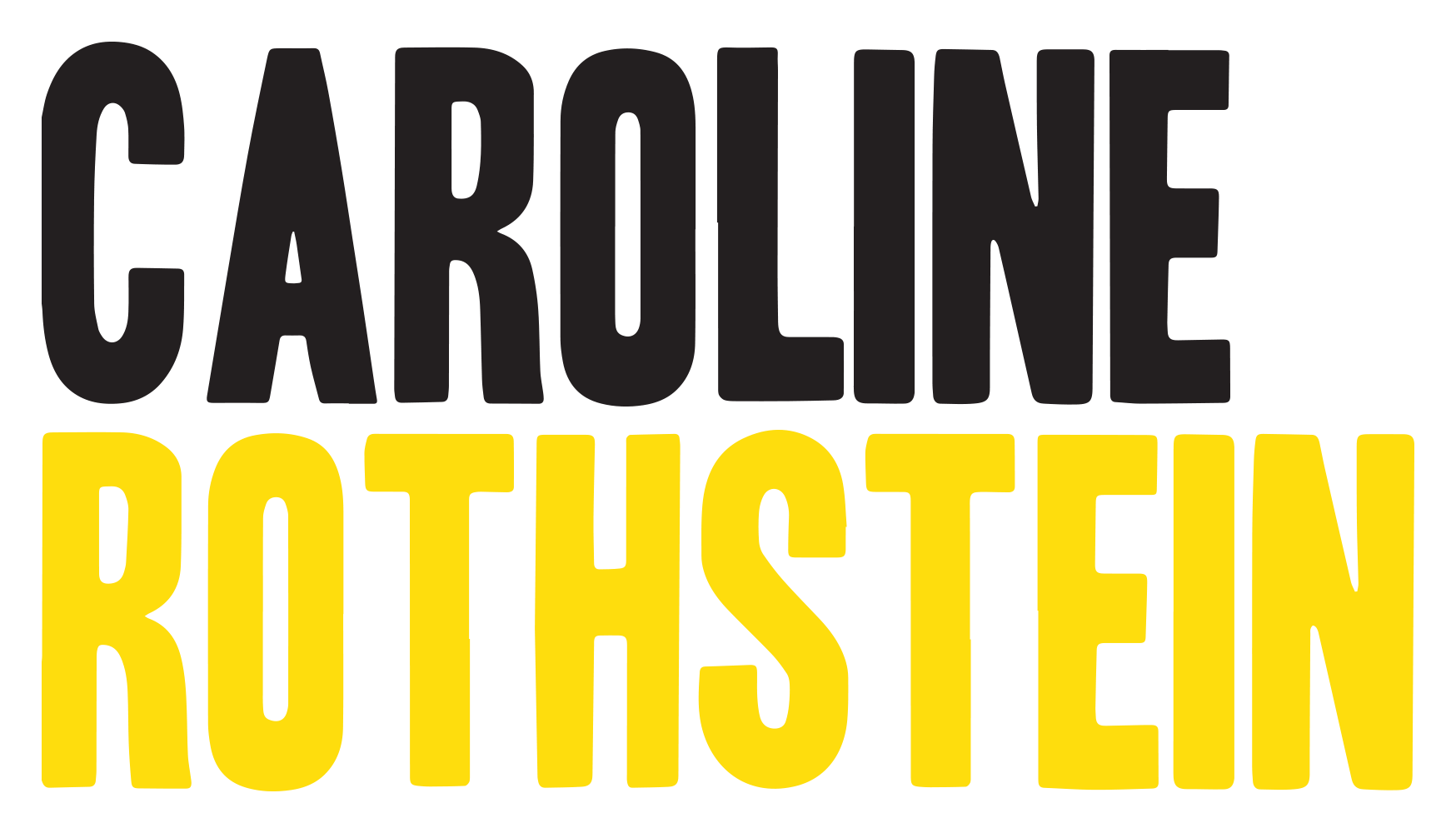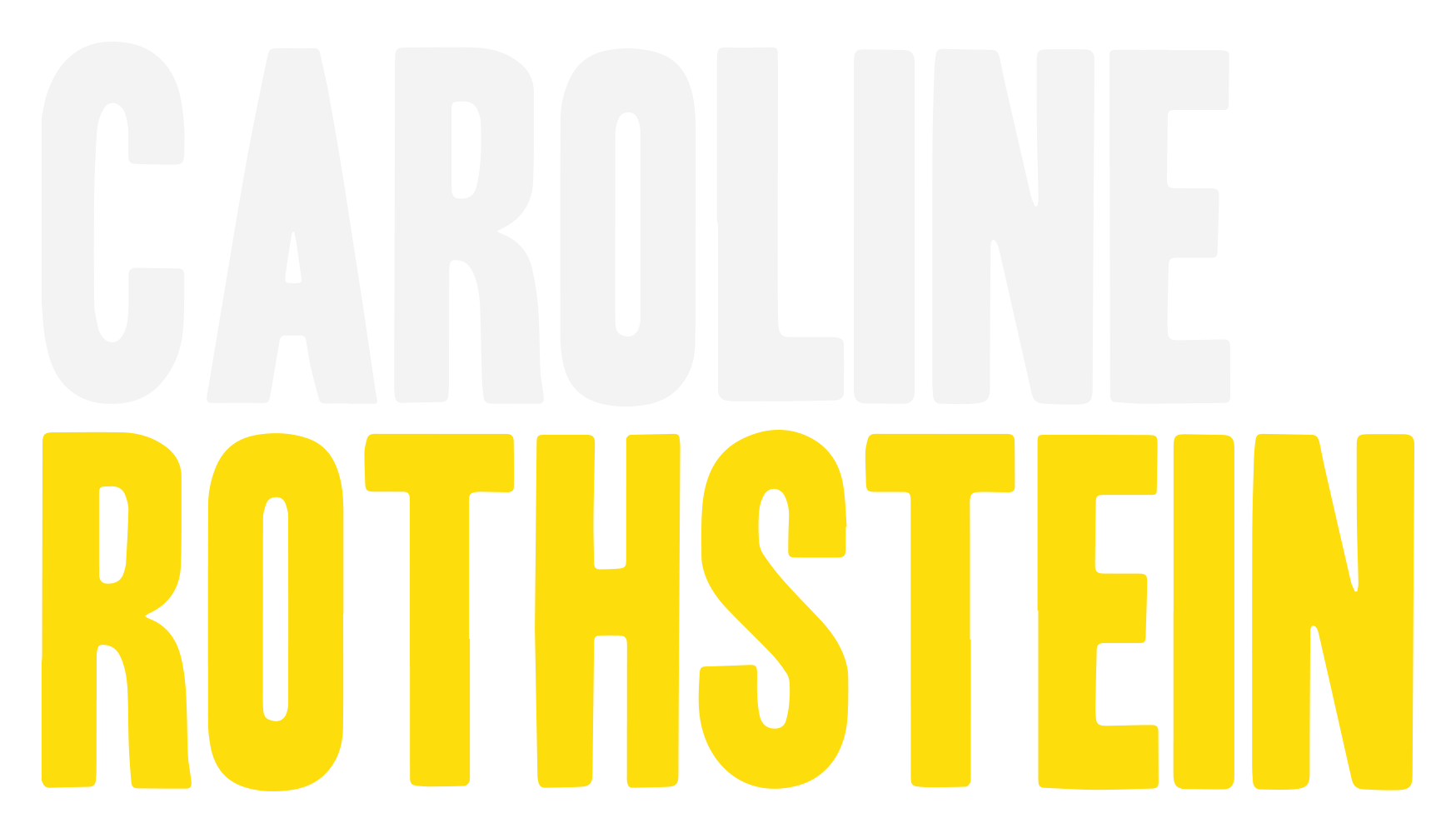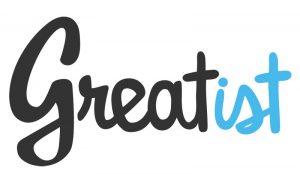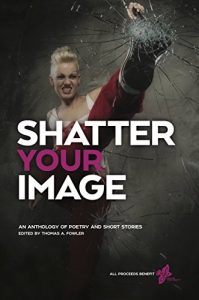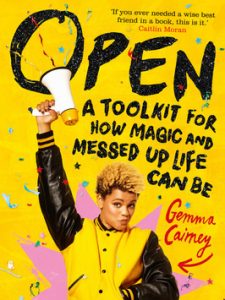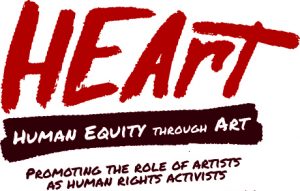Journalism & Essays
I’m a multi-hyphenate writer-artist-poet-performer-filmmaker, which means the possibilities for what I choose to do with an idea generally feel expansive, but also sometimes daunting. Over time, I’ve found that my creative ideas that want to be personal essays are the stories and experiences that make me desperate to — pardon my French here — work my shit out on the page.
Poetry tends to be where I go to process my feelings or wonders of my soul. Journalism — where I process my relationship to other people the rest of the world. Theater — where I explore interpersonal dynamics. Film — humor. Fiction — the snarky voice I’m too timid to use IRL.
And personal essay? It’s where I turn when I need the space to let the page reflect back to me who I am, and what it means to have experienced that which I have — personally — experienced.
I also use the personal essay as a place to really, truly, gut-wrenchingly slow down a moment, and allow it space to air out and breathe — like hang-dry laundry, contending with the wind.
How To Address and Overcome “Writer’s Block”| Narratively, August 23, 2024
I think “writer’s block” is a myth. A block implies stagnancy. A barrier. An adversary. A wall. But I think what’s really happening when we feel this so-called block is that we need to pause, regroup and take a beat. And I think feeling blocked, or getting stuck as I like to often say, can be a necessary — even essential, and hopefully productive — stage in the writing process.
If I’m not ready to write, I’m not ready to write. If I need to empty my inbox in order to write, or watch multiple episodes of Love Is Blind: UK (like I did to push through the second draft of this very piece), or have a snack or take a walk, then that’s the writing. Or if I need to question my entire existence before I churn out a couple thousand words, that’s the writing process too.
Wearing Crop Tops Helped Me Heal My Relationship With My Stomach | InStyle, July 18. 2024
I am curvy, voluptuous, thick. My stomach is by no means flat. It’s mushy, malleable, full. At times it has been tighter, or a little more firm. But my stomach—like my life—has undulated, accordioned, and shifted with time.
Nearly my entire life, I forced my stomach to exist in a vacuum. A siloed section I was afraid to know. That was sometimes related to the way body dysmorphia intersected with the eating disorder I had from ages 11 to 21, sure. But my experiences of negative body image began before that. I remember judging my body shape and size—especially my stomach—as early as age 4.
Students say the University of Michigan’s Sigma Phi chapter is a vital, lifesaving space, and that going all-gender was the obvious thing to do. The national organization responded by suing them.

A Guide To Talking To Your White Jewish Family About Anti-Black Racism | Hey Alma, June 4, 2020.
White Jews: America is not well. It never was. And we have a responsibility as white people to talk to our relatives and communities who are white, especially older folks, even if they’re liberal, to invite them into this imperative work. Racism is embedded into our society. We’re tired of white Jews, ourselves included, failing to take action to support Black lives and build an antiracist world because of white Jewish assimilation — which is itself a result of white supremacy. Liberation is a core tenet of who we are.
We are two white Jewish sisters who grew up in a mostly white, affluent suburb of Chicago. Our parents are liberal, by all accounts, but we came into our progressive antiracist politics by a combination of factors throughout the years. Yes, our parents taught us about egalitarianism from an early age, but we’ve also done a lot of work to learn about whiteness, white privilege, and white supremacy beginning in high school and college, through coursework, readings, trainings, difficult conversations, and educational resources. We continue to do this work in our current roles: Caroline is a Brooklyn-based writer, poet, performer, and educator, and Natalie is a psychotherapist with a private practice in Chicago, as well as an educator and consultant.

We Need Shabbat Now More Than Ever. | Hey Alma, March 27, 2020.
Two Fridays ago, on a final grocery store run before officially locking myself alone inside my Brooklyn studio apartment, I purchased a box of 72 “Standard Shabbos Candles” for the first time in my life. I had recently reclaimed the candlestick holders I got for my bat mitzvah from a family storage unit outside Chicago, so as I stood in line at the grocery store looking into my basket — essentials for this pandemic programming — I felt grateful I’d somehow decided that Shabbat needed to be part of what will help me live through these unprecedented and dark times.
I grew up in a Reform Jewish household. We didn’t practice Shabbat in any consistent kind of way. There was a small stretch after I had already left home where my mom spearheaded lighting the candles many Friday nights. Other than my siblings’ and my b-mitzvahs, we didn’t go to synagogue on Friday nights or Saturday mornings. My mother regrets this, telling me now, “The sense of connection and continuity with our faith and Judaic heritage deserved more of a ritual in our home, albeit our Judaism was cherished and honored in many other ways.”
About a year ago, my acupuncturist, who isn’t Jewish, told me she wanted to start working on my ancestral trauma. Jews, she said, have been conditioned to be ready to get up and go. That was causing me to have a lot of deeply rooted anxiety, she said. It was profoundly impacting my nerves. I got home and realized that even though I’ve never experienced homelessness, even though I’m a fourth-generation American Jew on both sides, I don’t know that I’ve ever felt fully settled where I live. Maybe in my life.
Case in point: I feel like my family and I have been preparing for this pandemic my entire life.
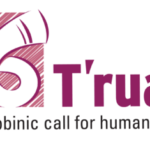
When We Make Art Together, We Dream a Better World Into Existence | Truah, February 25, 2020.
I am an artist. That’s been my identity, purpose, and path since I was three years old and slid on ballet shoes to dance across a recital stage. Then came poetry. And nonfiction prose. Then came singing, acting, musical theater, jazz and modern and hip-hop dance, improv comedy, and ultimately — when I got to college — spoken word poetry, where I found a medium by and through which I could integrate both my writing and performance skills while also speaking my truth.
Last year, after a lifetime of making art and a full-time career as a professional artist, I reached a moment of existential doubt: the world is unraveling, the country is a mess — is making art enough of a real and meaningful job in a moment of literal life or death for everyone on earth?

The Man with the Golden Airline Ticket | Narratively, July 22, 2019.
On March 10, 2009, a case was filed in the U.S. Circuit Court for the Northern District of Illinois, where I grew up. Rothstein v. American Airlines, Inc. starred my father, Plaintiff Steven Rothstein, and the Defendant, then the world’s third-largest airline. With $23 billion in annual revenue, American Airlines had nothing to lose. For my father, it was a last-ditch effort to save his life.
Here’s how it all took off. In the early 1980s, American rolled out AAirpass, a prepaid membership program that let very frequent flyers purchase discounted tickets by locking in a certain number of annual miles they presumed they might fly in advance. My 30-something-year-old father, having been a frequent flyer for his entire life, purchased one. Then, a few years later, American introduced something straight out an avid traveler’s fantasy: an unlimited ticket.
Our lives are at risk. The last two weeks brought a devastating cyclone for reproductive rights: Georgia’s governor signed a law banning abortion as early as six weeks, which is—in case you forgot from health class—before most people even know they’re pregnant; Ohio’s legislature introduced House Bill 182, which would block most insurance companies from providing abortion coverage; the Alabama Senate passed a bill that outlaws most abortions and makes it a felony for doctors to provide them; and Mississippi and Louisiana’s legislatures are on the cusp of similar domain. Across the board, these bills put folks who are pregnant or becoming pregnant—intentionally or not—at fatal risk, all in service of a “pro-life” agenda intended to threaten Roe v. Wade, which is—again, in case anyone forgot—enshrined in our constitution under the right to privacy.
Yet, despite this doomsday Armageddon hellhole that feels like The Handmaid’s Tale come to life, there have been small victories…and those are actually big deals. Seriously, it’s not all doom and gloom out there. Doom and gloom just gets the headlines. There are organizations and politicians and government officials out there pounding the pavement (and courtrooms) in favor of reproductive rights. Like Oregon State Attorney General Ellen Rosenblum—the woman behind many of these wins—and her colleagues.
![]()
The Wellness Industry Isn’t Making You Well | Marie Claire, January 1, 2019.
I’m as “woo woo” as they come: I wear red socks when I want to feel grounded by my root chakra and avoid signing contracts when Mercury is retrograde. I’ve had hot oil dripped on my third eye in India and my body wrapped in mud at the Dead Sea. I spend more money than I’d like to admit on classes at SoulCycle and kale salads from sweetgreen.
I am not a lemming following the trends. Quite the opposite: During my suburban Chicago childhood, I left for elementary school while my mother did cat/cow in her nightgown on her bedroom floor. I grew up getting acupuncture, meditating, and taking homeopathic remedies like Oscillococcinum or Yin Chiao herbs whenever a cold or flu was coming on.

I was harassed at an anti-harassment training | Women’s Media Center, December 21, 2018.
This spring, during an anti-harassment training, a man put his hand on my knee as he adjusted his chair. He made a playful comment about getting comfortable in his seat. Meanwhile, as a survivor of multiple accounts of sexual assault, my body—already on high alert—froze.
A dialogue ensued in my head amid my fight-or-flight response: Do I leave the room, or stay in my seat and breathe? I chose the latter. Minutes later, a facilitator announced a break. Having self-regulated back to calm, I felt relieved, until the man looked at me and winked. I made eye contact with a friend and colleague nearby. She walked with me to the hallway. I began to cry.

VOICES: Caroline Rothstein | AEPi, October 11, 2018.
I imagine it is a complicated time to be in a fraternity. The entire fraternity system is on trial instead of the mere individuals, who have committed egregious acts. And yet, their behavior seems to end up reflecting on entire schools, entire fraternities, and masculinity at large. This is neither right, nor wrong. It simply is. Which is why I feel strongly, given the current climate around sexual assault in our media and world at large, that it has never been a more important time to be in a fraternity. I feel strongly that AEPi can and must play a role in helping dismantle rape culture and end sexual assault both internally, and as role models for the world.

1881 Initiative aims to increase the number of female AGs | ABA Journal, July 2018.
Gender politics in America has come front and center since Hillary Clinton lost the 2016 presidential election and the Me Too movement sparked a national discourse. While women represent half of the U.S. population, the country is ranked 104th out of more than 190 for women’s representation in government, according to the Inter-Parliamentary Union, and representation at the state capital level is perhaps the most bereft.
Women make up one-fifth of Congress and 22 percent of mayors in cities with populations above 30,000. Eight of the current 50 state attorneys general are women: five of the 23 currently held Democratic seats and three of the 27 Republican.
![]()
How Kate Spade Got Me Through My Mental Health Struggles | Marie Claire, June 6, 2018.
In the years that I struggled with an eating disorder, my Kate Spade bags helped me manage my negative body image. I used my black nylon purse like a shield to cover my stomach as I sat—debilitatingly ashamed of my body—in class. My mother gave me a Kate Spade jacket for high school graduation. I told my friends it made me feel like a million bucks. While I was struggling, the jacket made me feel alive.
For a lot of people my age who grew up in the ’90s, a Kate Spade bag was a status symbol. Which is fine, of course — but that was never what drew me to her label.

Lawsuits, leads and old-fashioned legwork helped expose Larry Nassar | ABA Journal, June 2018.
The sentencing of Dr. Larry Nassar for molesting young gymnasts and USA Gymnastics’ alleged complicity riveted the nation for months. More than 150 girls and women read impact statements during Nassar’s sentencing. But it was a lesser-known lawsuit and partnership between investigative journalists and lawyers that helped crack the case wide open and make it front-page news.
In 2016, Indianapolis Star reporter Marisa Kwiatkowski was working on a story about sexual abuse when she received a tip urging her to contact W. Brian Cornwell of Cornwell & Stevens in Savannah, Georgia. Cornwell, along with Jeffrey Lasky of Lasky Cooper Law in Savannah, was working on a Jane Doe sexual abuse case against former USA Gymnastics coach Bill McCabe. During discovery, the attorneys had received 54 complaints against other gymnastics coaches, which the judge had sealed.
![]()
How I Came to Love My Body—a Decade After My Eating Disorder | Marie Claire, February 27, 2018.
I started thinking I was fat when I was 4 years old. The actual size of my body doesn’t matter; I had internalized cultural and global messaging that dictated how people—especially self-identified girls—were supposed to look and think. In elementary school, I experienced antagonistic body shaming and bullying from classmates, peers, my ballet teacher, medical professionals, even friends. The loudest voice, though, was always the one inside my head.
My eating disorder began in sixth grade. My family was on winter vacation in Japan. My father and I went to the gym. Treadmills lined an Olympic-sized swimming pool with the Tokyo night sky peering in through the glass ceiling. I was in a T-shirt and shorts, most likely Umbros, as it was December 1995. We jogged on adjacent machines for 20 minutes. Mid-run, I decided that when I got back to middle school, I was going to stop eating lunch. And so, I got back to middle school, and I stopped eating lunch.

How summer camp made me who I am | Our Town, January 26, 2018.
When I was 15 years old, I hiked the top of the Appalachian Trail. It was my last summer as a camper at sleepaway camp and the oldest age group always climbed Mount Katahdin in Maine.
As my bunkmates and I ascended into the sky bearing our bulky late-1990s frame-packs. I began experiencing horrible cramps. I had an ulcer in my stomach, and a bruise at the base of my esophagus. It was the result of bulimia, which I’d developed just before heading to camp two summers prior. I’d had an eating disorder since I was 11.
![]()
Survivors of Sexual Assault Shouldn’t *Have* to Speak Out | Marie Claire, January 3, 2018.
I am sitting on a stool, midway through an interview with a news organization about my experience as a survivor of both rape and sexual assault. It’s a weekday. The sun is shining. My curly hair is framing my face.
Across from me, a journalist asks, “What were you feeling when you were being assaulted?”
My stomach drops. My throat closes. I have no voice. I cannot move. I am quite literally triggered beyond words.
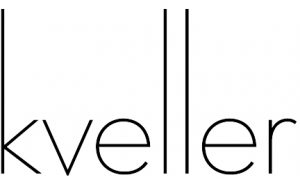
Declaring ‘Hineini’ — I Am Here — At My Best Friend’s Bedside | Kveller, November 15, 2017.
On March 31, one of my best friends, Sarah Portlock Fellman, collapsed at work, after an aneurysm ruptured in her brain. She was seven months pregnant and had been in the newsroom at The Wall Street Journal, where she was working as an editor.
I was at the University of Pennsylvania, where I went to college, for an event, when her husband called to share the news. After we spoke, I rushed outside and opened my umbrella into the pouring rain, and I said, out loud to the universe or the sky, “God, please don’t do this to me again. Please don’t do this to me again.” I’d also rushed off campus 15 years prior, my freshman year, when my younger brother, Josh, was hit by a car. He died the next morning. He was 15.

Law Firm Hosts an Evening of Art Imitating Life | ABA Journal, September 2017.
On a Wednesday evening in June, 150 Schulte Roth & Zabel employees and four award-winning thespians packed a Manhattan conference room for a standing-room only event: a performance of Aeschylus’ ancient Greek tragedy The Eumenides.
The premiere of Theater of Law, an innovative dramatic project, was underwritten by SRZ and co-produced by Theater of War Productions and the New York University School of Law’s Forum on Law, Culture & Society.
![]()
What I Wish I Said to the Man Who Sexually Harassed Me on the Subway | Marie Claire, March 8, 2017.
When I got on the train headed north, I sat down in the brightly lit subway car, and exhaled. It had been a pretty good day, until it wasn’t anymore. One comment can do that to a person. But here I was, at least, seemingly home free.
That’s when it happened. A stranger came on board and immediately started staring at me. I could feel his gaze coming for my body and face. He crossed the subway car and hovered over me, only a few feet away. Then he turned and started checking out my reflection in the window opposite where I sat. I could still see his eyes on me. He started licking his lips, like I was his feast.
Poetry
“sex appeal.” The Brooklyn Rail. April 2021.
it isn’t that the covid makes
me feel sexy. but i live alone.
even without this isolation,
i’ve lived too long without
touch. my hair, piled on my
head. wisps, basking in the
glory of my neck. glasses,
clasped against the bridge…
“Tinder.” Rogue Agent. June 1, 2020.
When I say I am looking for a feminist, what I mean is: period sex
on my yoga mat on the floor of my apartment after Chinese take out.
What I mean is: I tell you my rape story on a beach towel
and you tell me you love being intimate with me. What I mean…
![]()
“Holy On My Own.” Our Town. May 23, 2018.
Self-love is sobbing fetal position on the
brown wooden paneled floor of my bedroom
in Bushwick the night before I move out;
my torso prostrating back in on myself;
my body, the only G-d in sight.
Documentary Film
How To Build a City | ALL ARTS TV, April 16, 2024.
Poet Mahogany L. Browne’s debut film presents an oral history of performance poetry in New York City and beyond. Featuring the voices of globally renowned poets and notable artists’ gathering spaces from Nuyorican Poets Cafe to Lincoln Center.
